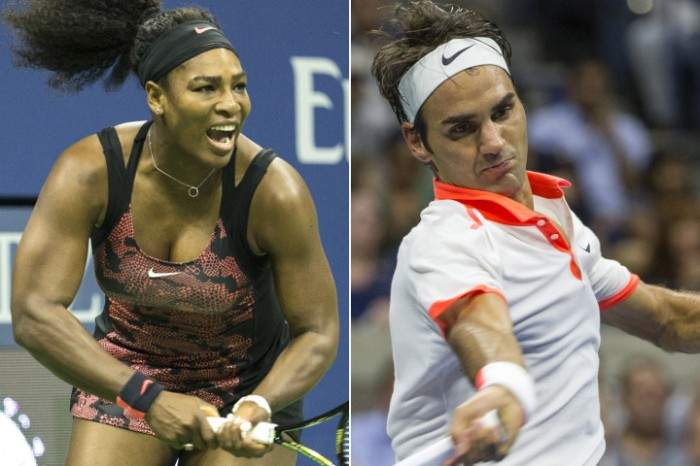
"I believe we are stronger as a people, versus doing it on our own, it is too hard. If I travel with another brother or two or three, we confide in each other, we keep it positive and work to get what we want from the situation. This is who our people are, this is what we do. We help each other."
You can’t force a determined and focused athletic performance when the passion is gone. It is in our genes. Our emotional energy is a limited resource. If we fail to use it wisely we deplete the brain reservoir of feel good neuro-chemicals needed for focused attention and become mentally distracted, disinterested and bored.
This problem is not isolated to the UK or to Football. In the book “Sport Children’s Rights and Violence Prevention” by Brackenridge, Kay and Rhind (2015), reported on a study that looked into sexual abuse in Australian sport found the following disturbing facts.
When we care less for ourselves and more for others the brain rewards us. Not only do our efforts help those we are dedicated towards supporting, but in doing so we help ourselves. With more oxytocin circulating through the brain, fear subsides and athlete is free to compete to the best of their ability.
Thanks to Caroline Marton and Carmen Marton (Taekwondo) who shared the discussion on how to help our Olympians post Rio. Post-Olympic stresses and athlete transitions into life after sport present considerable challenges with many athletes left feeling confused, depressed or disillusioned. This is at odds with living the Olympic dream and celebrating being an Olympian. Aware that post completion blues can be a part of the Olympic experience “Wired to Play” is assisting the AOC is running awareness raising workshops with our athletes.
There is something very primitive about our desire to play, play often and play well. It is hard wired into our DNA.
Life is all about energy including mental energy. Like other energies our mental reserves are a limited resource so don’t forget to refuel the tank.
A common mistake for coaches and athletes is to slip into a “more is better” attitude. Australians are known for their work ethic and when we are under pressure, our default switch is to work harder. It is the undoing of many an elite athlete, coach and CEO. Pushing into the red, believing an increase in work ethic is a sign of dedication and commitment, when in reality it generates junk training, poor concentration and emotional fatigue.
I can’t help feel for Ben Barba. He has been released by the Sharks to deal with personal issues after a positive test for Cocaine four days after their grand final win. Not knowing the underlying story or long term support the Sharks have provided to Ben, one still wonders if our athletes are held to a high standard when it comes to personal behaviour?
There is a wave of change surging over Australian sport. The trend towards “fast games” seem to be synchronized with a decrease in concentration span. An inability for spectators to sit quietly and reflect. Rather an “I’m bored generation” seems to be spawning sporting formats that are quicker, faster and shorter than their previous versions, but at what cost?
At any given point in time the brain sub-consciously processes millions of pieces of information, but consciously can only handle 40 -150 pieces (depending on the research) before it becomes overloaded. Human beings, however, have an amazing capacity for pattern recognition. Individuals who are successful in sport and in life have the capacity to take seemingly random pieces of information and chunk them into meaningful little nuggets of gold.
Who decided to label the athlete who hesitates under pressure not wanting to let down their team, family or community a choker while indifference can be labelled as mentally tough? As the Olympics approach we need a timely reminder of the value of compassion.
The world can be a crazy hectic place, you can feel so busy rushing to get things done that you are rarely ever present in the things you do. You may ruminate over what happened yesterday, worry about what you have to get through today and feel anxious you won’t have time tomorrow. Always striving to be in a better place sometime in the future, but never really happy with where you are right now...
Australia, with its small population base, continues to be a powerhouse in world sport by nurturing our talent. Despite what some may think you cannot muscle a good athletic performance...
It doesn't matter how successful or infamous your sporting journey, from the those who didn't quite make the heights of international stardom to the super elite, life after sport is a struggle. Niall Quinn (Arsenal, Manchester and Sunderland Soccer International), Greg Louganis (4 Times Olympic Diving Gold Medalist) Ben Johnson (1988 Olympic 100m Sprint Champion - later stripped of his title for taking a prohibited substance), have all travelled down the dark tunnel of depression after sport.

AUTHOR: GAYELENE CLEWS
PERFORMANCE PSYCHOLOGIST, OLYMPIAN, AUTHOR AND EDUCATOR.
Helping others transition from the ordinary to the extraordinary. Olympic psychologist, former elite athlete, coach and educator, Gayelene Clews, is passionate about helping people excel. Gayelene Clews has achieved a lifetime of success in the highly competitive international arena of elite sport and in the field of education. Of her achievements she says,
“I love to work with the individuals in the ‘grey’ - those who are made to feel unremarkable - because I know that the extraordinary lies in all of us, but to be everything we can be, we first have to truly know ourselves.”
Read more about Gayelene Clews and Wired to Play Consulting >



























